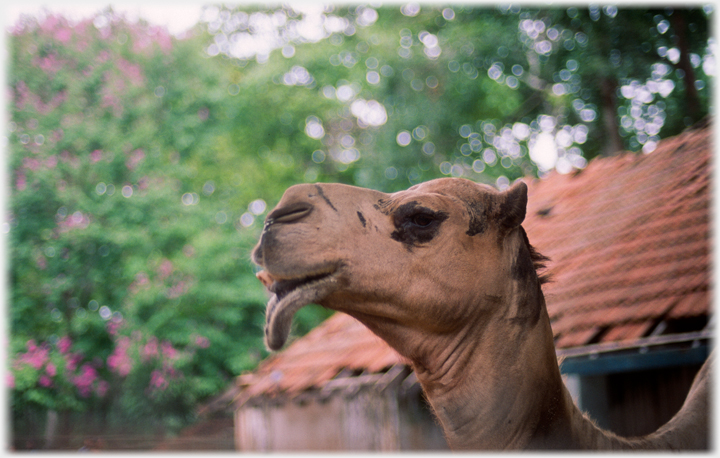
Being Objective
What is it Like to be a Bat?
Thomas Nagel (1974)

The View from Nowhere
Thomas Nagel (1986)

So much is said in a good title; here Nagel’s are exemplars. In 1974 he was considering the bat’s point of view - its
viewpoint.
 On viewpoints.
On viewpoints.
Lacking pictures of bats, the knowing eye of this camel serves well, it is hard not to attribute a point of view
to it,
 For humans language may force a point of view, in itself this makes problems.
and this ushers in an important philosophical problem: however long an account of the material attributes of our camel we might give, we would fail to catch its unique point of view. Two organisms can’t have identical views. To be a bat, or a camel, or me, (or my conjoined twin), is to have a unique
outlook.
For humans language may force a point of view, in itself this makes problems.
and this ushers in an important philosophical problem: however long an account of the material attributes of our camel we might give, we would fail to catch its unique point of view. Two organisms can’t have identical views. To be a bat, or a camel, or me, (or my conjoined twin), is to have a unique
outlook.
 Blake’s poetic statement of viewpoint.
Blake’s poetic statement of viewpoint.
The word subjective conveys this uniqueness. The material account is trying to be objective in the sense of publicly accessible to
everyone.
 Another sort of public accessibility is provided by symbols.
Another sort of public accessibility is provided by symbols.
But such an account will always leave something out. Nagel’s later book title says so much in four words. There cannot be a view except from a point, there is no view from nowhere. Objectivity will always be partial, it can never make fully public my unique world - let alone the camel’s.
Nagel’s article, with that (now famous) title, was published in The Philosophical Review in volume 83 (4) pages 435 to 450. His book The View from Nowhere was published in 1986 by Oxford University Press.
The camel posed for me in the zoo at Thiruvananthapuram (formerly Trivandrum), Kerala’s capital in southern India.
Above, hovering on blue introduces a link: click to go, move away to stay.

Saturday 31st August 2024
 ...guide to this site
...guide to this site